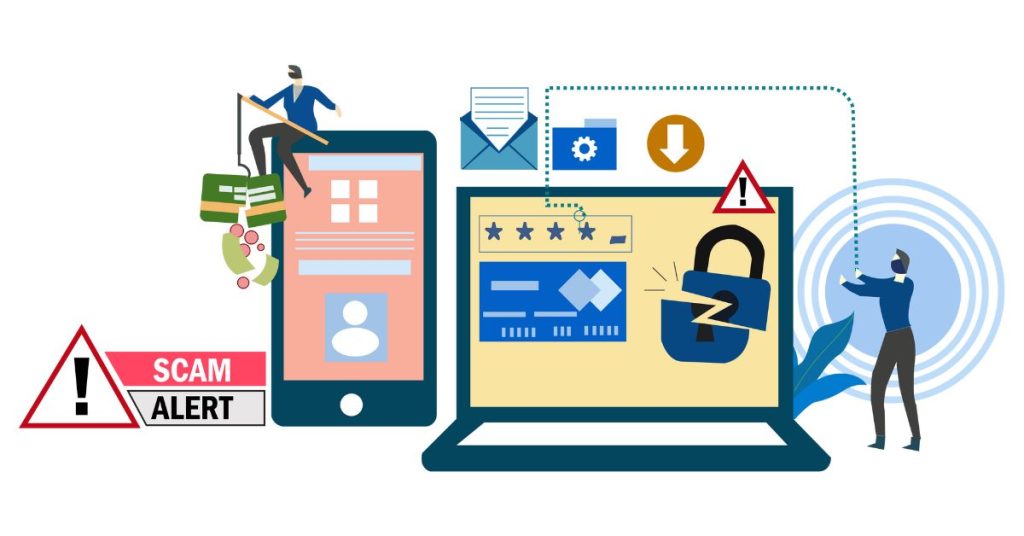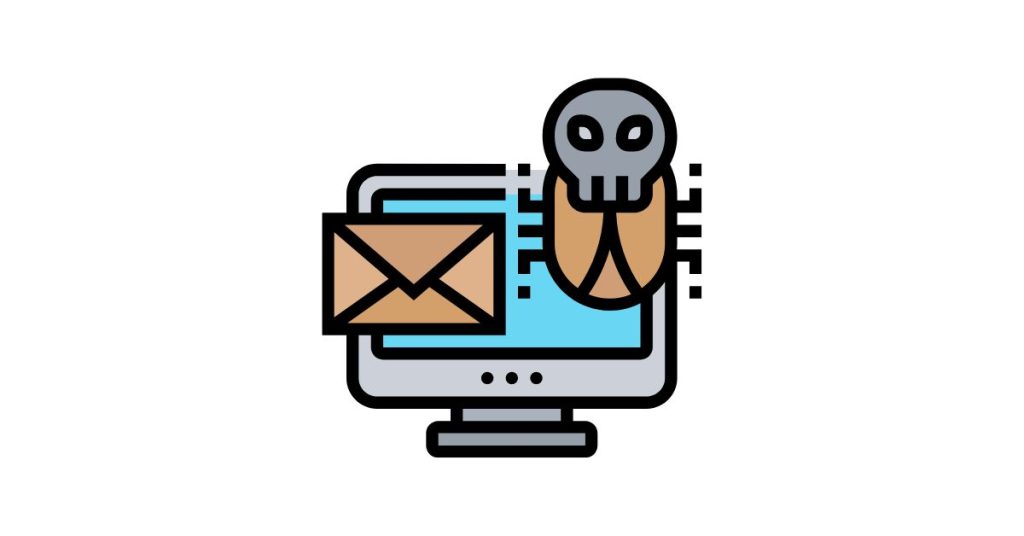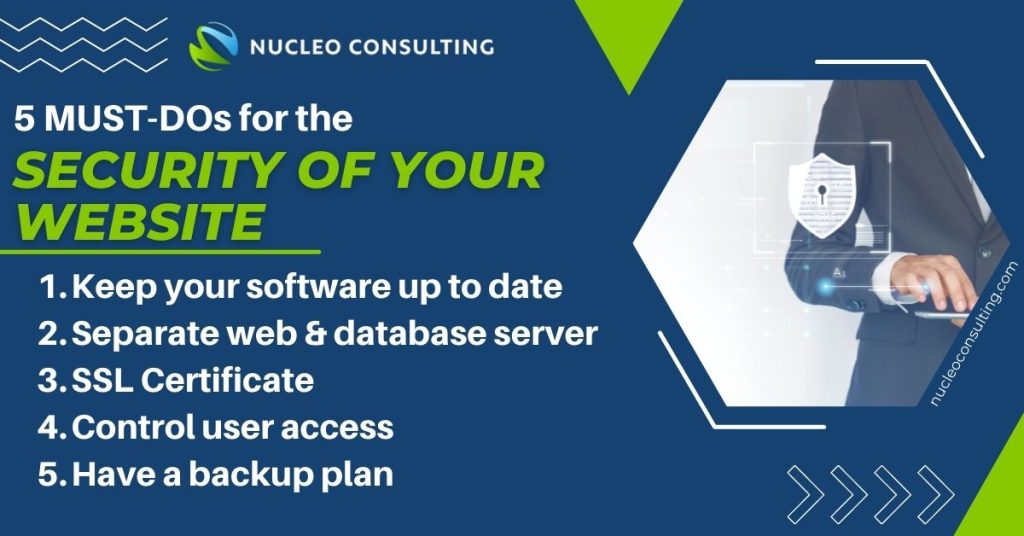Ways To Ensure The Security of Your Website
[2 mins read]
A website is more than just a webpage about your business and can contain more information than you think. The security of your website is crucial for both your business and your clients.
In this era where more businesses are going through digital transformation, a website is usually one of the main ways to connect and share information with their potential and existing clients.
Apart from ensuring that all the pages are loading properly, and maintaining up-to-date information displayed on your website, the cyber security of your website should not be taken lightly. A website that is poorly maintained would drive potential customers away from your business for their needs. Needless to say, it would potentially attract cybercriminals to hack your website too!
Why do cyber criminals hack websites?
Thousands of websites are being hacked every single day. “Money is the root of all evil”. While that may be the main motivation of a hacker, not all of them are after financial gains. A hacker hacks websites for various reasons. Here are some of the reasons why cybercriminals hack websites:
1. Phishing

As the name suggests, phishing is a type of social engineering attack where the cybercriminal ‘fish’ out sensitive information from its victims. The information they look for are details such as login details, credit card details, personal identification numbers, residential addresses, contact details, and so on.
Once they have their hands on these information, the hacker could proceed to misuse these data for fraud, identity theft or impersonation. Another way to make a huge amount of money is by selling these data on the dark web or selling it back to the owner by asking for a ransom.
2. Disruption of service

Have you heard of website vandalism? Also known as website defacement, which is nothing new. Years ago, Singapore reported a few cases of website defacement on government websites. It can be seen as an act of revenge, or just for fun.
Hackers may hack your website just for the sake of disrupting your services or making it unavailable for your users. It may be for revenge or can be for financial gains. An example of such an attack would be the DDoS attacks. Of course, these cybercriminals may use this to divert attention for other types of cybercrimes happening behind these covers!
3. Spams

As much as we hate spam, hackers may hack a website just for sending spams. By using this way, they can use the domain name to avoid the spam folders which also allows them to bypass their own email providers, without the risk of being shut down.
4. Malware

Malware is a short form for ‘malicious software’, which refers to software developed by cybercriminals for data theft or do damages to the systems. Hackers may hack a trusted and popular website to spread the malware to unwary users or get them to download malicious files containing the malware. The more legit the website seems; the more willing users are to accept the download.
5. Fun

Apart from all the examples shared above, some of them may just be doing it for fun. It may be a random attack to practice their hacking skills before they launch it on something of a larger scale. Or simply just to show off their skills!
How to ensure the security of your website

1. Software updates
One of the most important keys to keep up with your cybersecurity defenses! Keeping your software up to date is extremely important as these updates may include bug fixes, fixes to any security flaws or new features. Hackers are always on a lookout for software vulnerabilities to take advantage of the flaws, so make sure all your software is updated to the latest version!
2. Separate web & database servers
Professional IT consultants would recommend that you avoid placing all your eggs in one basket. The reason is simple- don’t make it easy for the hackers! If you have everything hosted on one server, all the hackers had to do is to target that very server. Separating your web servers and database servers would ensure better website security. Owners who have more than one website are recommended not to host all the websites on one single server for the same reason.
3. Certificate
An SSL Certificate stand for ‘Secure Sockets Layer’ certificate. It refers to a digital certificate that enables encrypted connections and authenticates the identity of a website to prevent cybercriminals from creating identical fake website. It ensures that your online session is safe by securing information such as your log in credentials, credit card information, personal details, medical records and so on.
Most businesses would require the SSL certificate to identify their website as trusted websites (HTTPS web address). Most web browsers will warn users that the website is ‘not secured’ (HTTP web address) without the SSL certificate, which may affect how your potential clients see your business.
4. User access
Always be wary of who you grant access and permission to. You should only provide permission when absolutely necessary. All user accounts should also be separated so that it would be easier for your IT team to monitor the user activities and look out for any suspicious behaviors or activities.
5. Backup plan
Having back up is crucial for any systems containing important data. It is also important to ensure that the backup job is successfully done, and on a regular basis. It is not recommended to have the data backup in the same server, as it may be affected if anything happens to the server.
Businesses can consider having the backup on cloud, or co-location services provided by a trusted IT support company.
With cyber threats on the rise, cybersecurity has become everyone’s responsibility. A website is more than a page with your company’s details. It is the first impression of your company to a potential client, the reputation you have built over the years, and the trustworthiness of your business.
Don’t let cyber threats get in the way of your business. Speak to a trustworthy and professional IT support consultant for recommendations on web and database hosting now.
IT Tips | cybersecurity | hacker | Cyber Attack | Internet | Phishing
